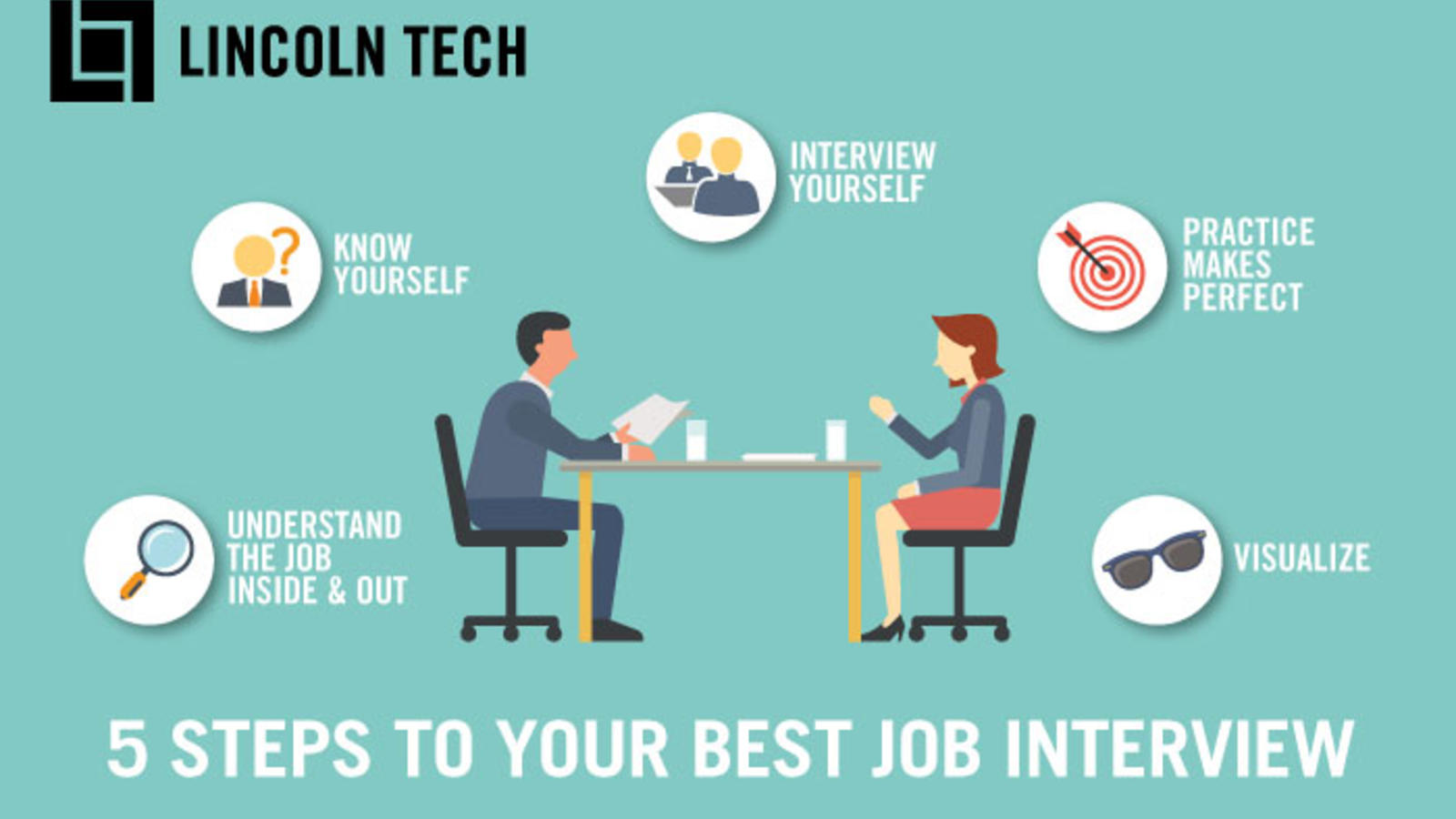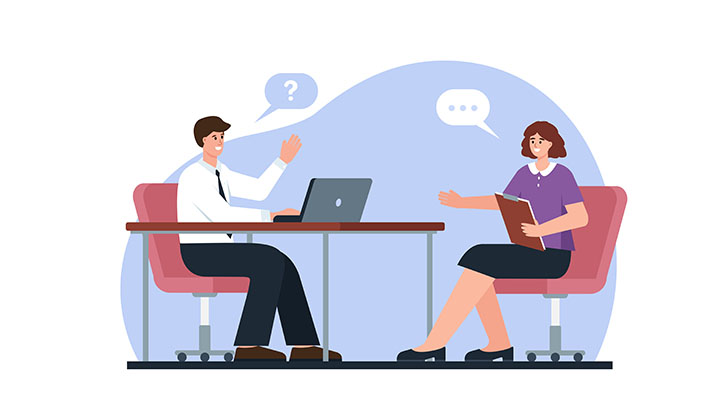7 Tips to Improve Your Remote Job Interview and Get That Position
Published

Are you ready to take your interview skills to the next level? Use these 7 pro tips to impress remote hiring teams and get to the next round!
Want to take your interview to the next level?
Maybe you think you're a top candidate because of your impressive resume and cover letter job interview have introduced. Or maybe you just did a fantastic job and outsmarted the company's Application Tracking System (ATS).
In interviews Hiring teams look for the best of the best. You're competing with the best talent from around the world for this position, so now is not the time to improvise.
Hiring teams use remote interviews to get a quick impression of their candidates. You are looking for self-confident, qualified employees who feel comfortable in an independent, decentralized work environment.
This is exactly what you need to show them.
The distance learning interview tips we provide in this guide cover all areas to help you make an unforgettable first impression and land your dream job.
7 Tips to Improve Your Remote Interview and Get the Job
While your remote interview may take place over the phone, it's more likely that your potential employer will use a video conferencing platform such as Zoom or Skype.
These virtual platforms allow teams to get to know you on a personal level and see how comfortable you are with remote technology.
1. Frame the shot like a pro

Those : lincolntech.edu
Your home office is the best place for your interview. It gives potential employers peace of mind that you have a productive workspace to utilize from day one when they hire you.
But if you don't have an office at home yet or prefer to work in cafes or coworking spaces, that's okay too. Just make sure you find a place where there are few distractions and background noise, otherwise it might be difficult for the person you're talking to to concentrate on what you're saying.
Whatever location you choose, open the video app you want to use and try to find the perfect shot. Stand in the center of the screen, find bright, natural light, and clear away anything in the background.
Your background tells potential employers a lot about you. So if you prefer to maintain your privacy or have a more professional look, you should check whether your video app offers special background features.
With Zoom, callers can blur their backgrounds or use virtual backgrounds. There's even a low light setting to combat a dark room and a "Touch Up My Appearance" feature to enhance your natural beauty.
2. Have these 4 things ready
Once you have one job interview If you've led somewhere else, you're pretty much tied to that place. That's why you should have these things ready the night before. Here's how you know they're there when you need them during the conversation:
A cheat sheet about the company
Never go to an interview unprepared. Research the company, its industry, and its competitors, and have this information ready to bring up during the interview.
- Take a few notes about:
- What the company has done recently
- Important personnel changes (e.g. a new CEO)
- What they share on social media
- Latest news or press releases
- Launch of new products/services
Talking about these points shows that you have done your homework and are eager to contribute to the team.
A cheat sheet about you
Print a copy of the job description and highlight any skills, qualifications, experience and training you have. You should definitely mention these to convince the hiring teams that you are the right person.
Your online portfolio or website
Building a personal brand positively impacts your career in many ways. But what are the chances that a hiring team has seen your bug-free code or your impressive graphic designs?
So keep your digital portfolio open in a separate window and show it to the interviewer when the opportunity arises. This will definitely give you a lead over your competitors and show the teams that you are independent and think ahead.
4. A notebook and a pen
You can write down questions about the company and the position you want to address. You should also take notes during the interview so you can ask targeted follow-up questions.
Avoid typing notes during the conversation. The keyboard creates a lot of background noise and you can't maintain 100% eye contact, both of which are big no-nos.
3. Prepare for these interview questions
If you are at one job interview Being surprised by a question can throw you off guard. So, think about good answers to the most common remote interview questions:
Do you have experience working remotely?
If so, that's great! Hiring teams know you have the ability to handle the challenges that come with remote work. Let them know about the remote work tools you're comfortable with, how you prioritize your workload, how you communicate with your colleagues, etc.
No experience with remote work? No problem! Highlight your transferable skills related to the role and explain why you're excited about working from anywhere.
Why do you want to work remotely?
Don't fall into this common trap. Even if the honest answer is that you hate the commute and love working with your little ones, always rephrase the answer in a way that helps the company.
Are you more productive at home? Are you more creative? Use these selling points.
How do you stay focused when working remotely?
Tell potential employers how you organize your schedule, prioritize tasks, and meet deadlines. Share what you do to regain focus when you are distracted. Mention how you ask for help when you feel burned out.
How do you work and communicate effectively with remote team members?
Show your teams how much you love asynchronous communication by covering all the tools you use to stay in touch. Talk about your experiences with project management software, messaging apps like Slack, shared workspaces, etc.
What is your salary expectation?
Check out this guide to answering salary expectations questions for a complete overview.
The best way to practice answering these frequently asked questions is to... job interview plan with yourself (and a recording) or with a trusted friend. Practice different answers and then think about which ones you want to tweak before the big day.
Tell START stories

Those : sugermint.com
Always use the START method when asked to describe a situation in your professional life in which you had to overcome an obstacle or complete a difficult task. This acronym stands for describing:
- situation or scenario
- task that you had to accomplish
- Action you took
- Results you have achieved
- Reconnection or how this experience prepares you for the new role
Each story should meet these criteria, demonstrate relevant skills you need for this position, and demonstrate that you are more than capable of meeting the challenges this new position presents.
Never badmouth previous employers or colleagues, even if they have wronged you. You don't want to come across as a "problematic" employee during interviews. Instead, reframe the situation by explaining what you learned from the experience and how it strengthened you.
5. Ask at least three questions to show you are serious
Interviews are a two-way conversation. You also need to find out if a top Pursue is right for you.
One way to get more information is to ask follow-up questions when a natural conversation opening arises. The other? If the interviewer asks you at the end of the conversation if you have any questions.
Always ask at least three questions here. This level of interest shows that you are serious about the company/position and that you have been paying attention. Insightful questions show that you are a good listener. And thought-provoking questions leave an unforgettable first impression.
Before the interview, write down a few questions you want answered in your notebook. Cross out any questions your interviewer answers during the conversation so you don't force them to repeat anything.
Hiring teams see candidates who don't ask questions as a big red flag. They think that a candidate's silence means that they either don't care enough or think they know more than they actually do, both of which make a bad impression.
6. Go through the next steps in the hiring process
As your virtual interview comes to an end, your interviewer may provide an approximate timeline for when they will wrap up discussions and make a decision. If he doesn't mention this, you can ask:
- What are the next steps in the hiring process?
- When do you want to fill the position?
- Do you have concerns about my ability to meet the requirements of the position?
- How can I prove that I am the right person for this position?
- May I contact you if I have any further questions?
- Will you contact all applicants who applied or just the one who received the position?
Knowing these answers can reduce your interview anxiety and help you:
7. Send a thank you and follow-up email after the interview

Those : nfppeople.com.au
These two documents distinguish the ordinary applicants from the professionals. Here's how to stand out as a great applicant:
After the interview, send a thank you email. Thank your interviewer for their time and let them know how much you appreciate the opportunity to be considered for the position. Mention how much you would like to work for the company thanks to the great conversation.
Send this email, text or social media message within 24 hours to stay top of mind.
After the interview, send a follow-up email to follow up. Hiring teams are very busy these days. So if someone hasn't had a chance to contact you yet, it's perfectly fine to reach out first.
Be professional about it (i.e. don't send 15 LinkedIn messages in one day). Let them know that you will be happy to answer any additional questions. And that you are happy to hear about the position that you are very excited about.
If you learn that the company has chosen a different candidate, thank them for their time and ask that they consider you for another position in the future.
Now you are ready, each job interview to master with self-confidence!
Don't let interviews stress you out. If you land a match, it means someone from the best companies offering remote jobs wants to talk to you about your impressive resume. So use today's tips to impress her!








